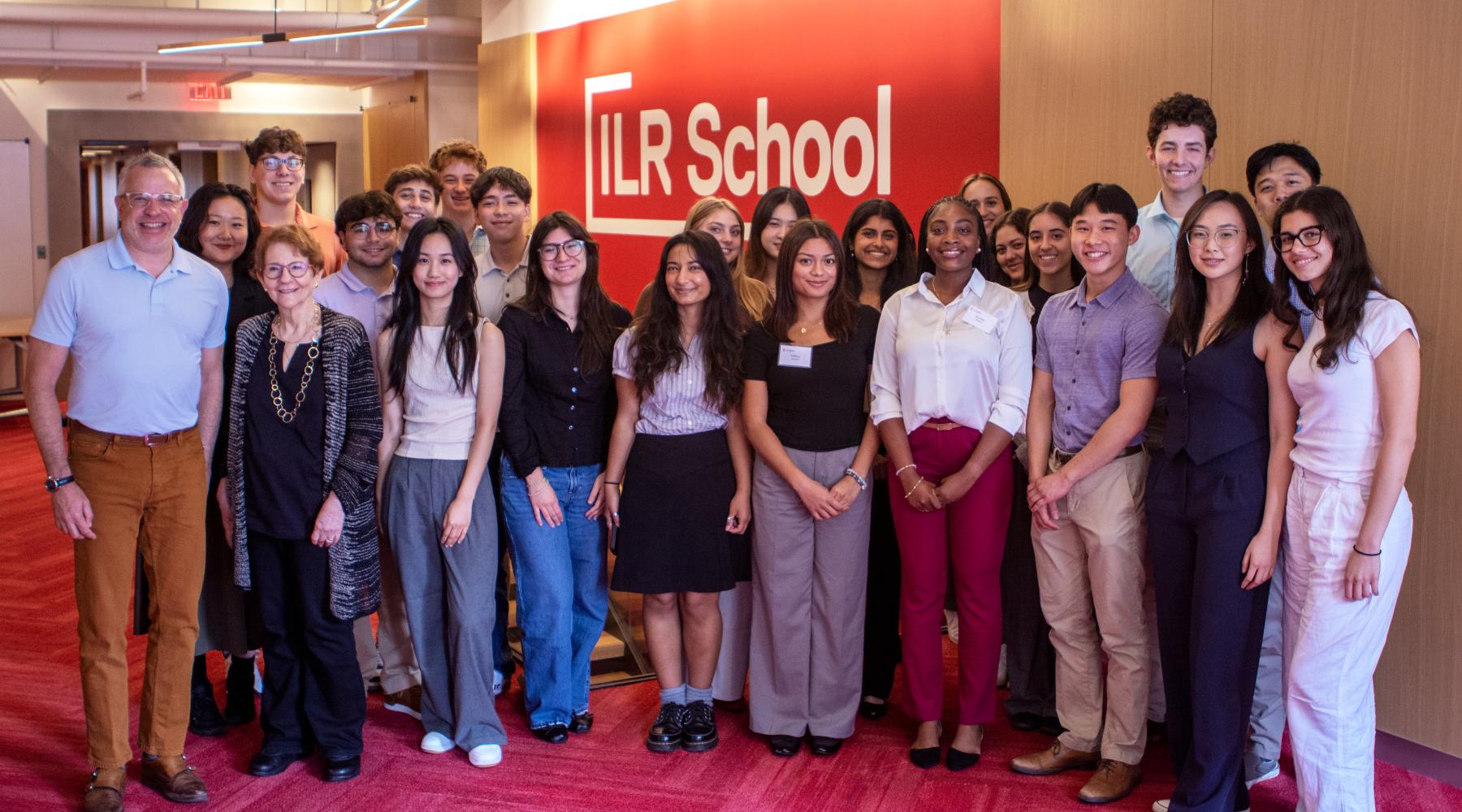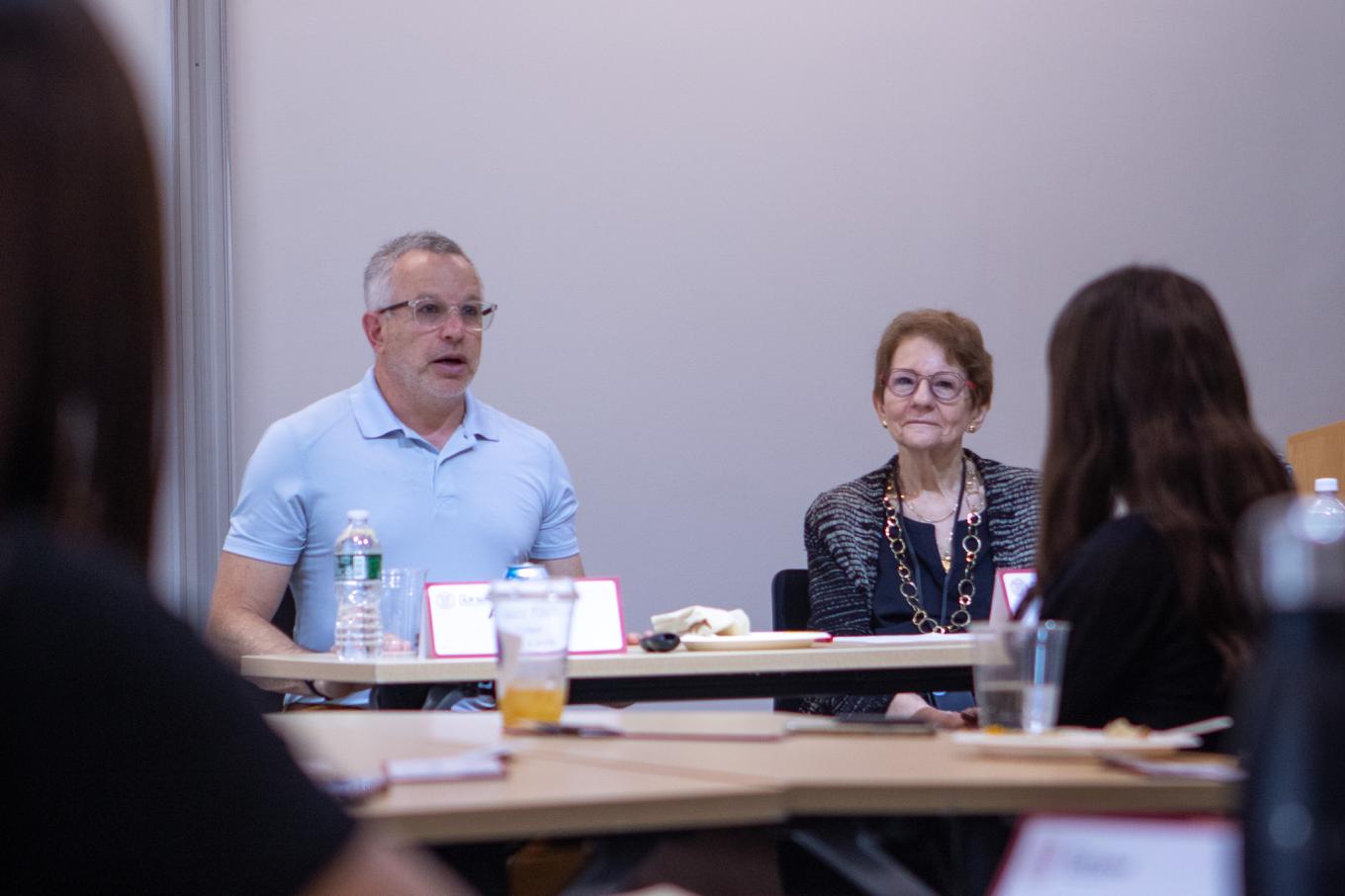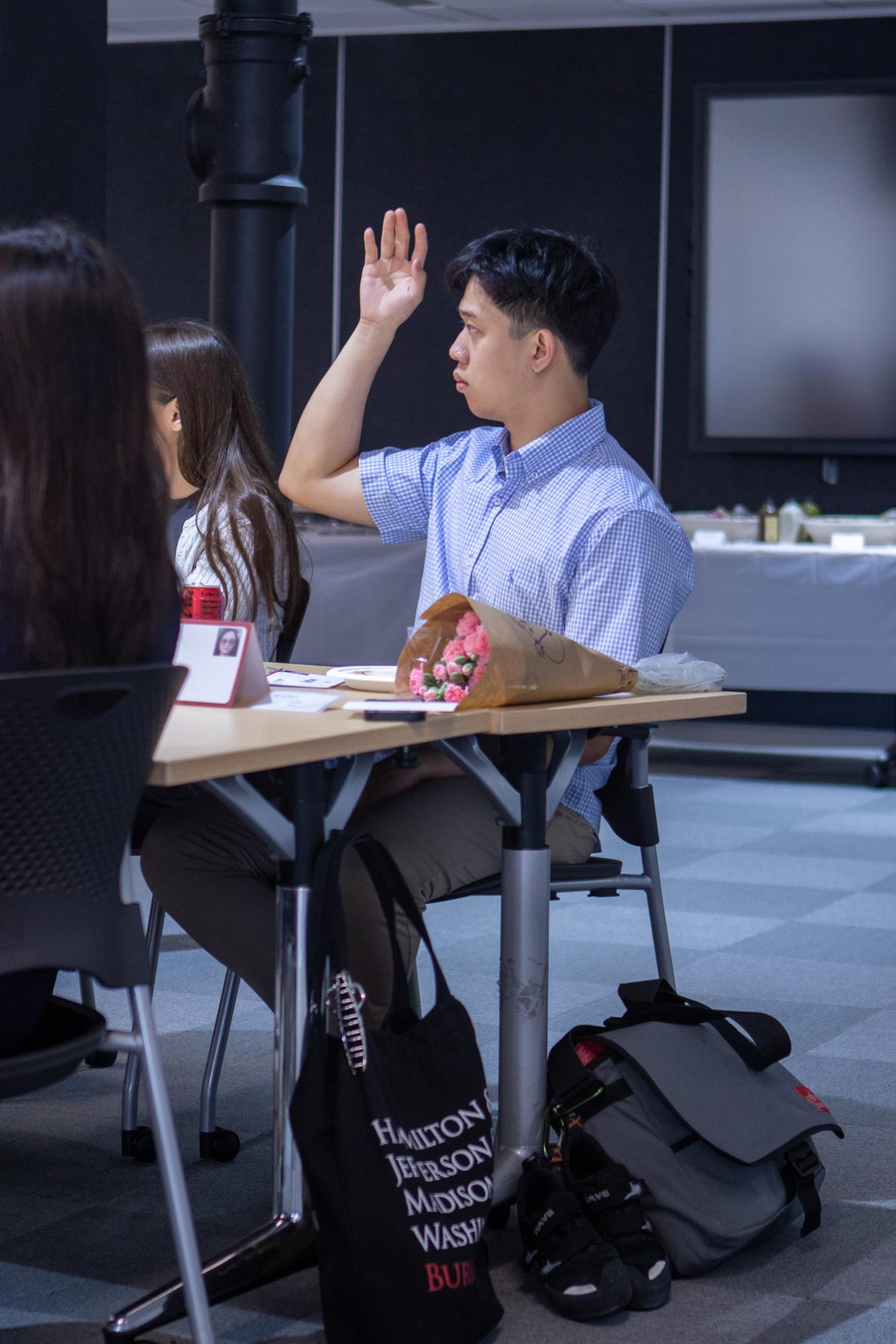
High Road NYC Enters Its Third Year
Cornell ILR’s High Road New York City program began its third year at the start of June. 24 ILR undergraduates will spend eight weeks working across 17 partner organizations around the city for a summer full of engaged learning.
The hottest days of the year hit early, way ahead of schedule. Triple-digit temps sweat the city into a frenzy, and the mood seems similarly frenetic around the world. Some kind of future is fast arriving, and this year’s High Road NYC fellows sense it.
“We’re sort of living in our own slot machine,” said today’s guest speaker, Adam Klein `87, to the High Road students. “Facebook basically has a psychometric profile on everyone, and it's extremely accurate. It can compute simple things like age and gender, race, educational attainment, interests, behavioral analysis, impulsivity–so psychometric or psychological aspects of your personality–and then tailor these interactions with you based on that information. That's how it works. And so you're being manipulated. We all are being manipulated.”
Klein is managing partner at Outten & Golden LLP. He founded the firm’s class action practice area and today speaks to the High Road NYC fellows as an expert in Artificial Intelligence and its intersection with law.
“Every aspect, every feature of the practice of law and, frankly, anyone around the world who's in any kind of knowledge-worker position, is impacted by AI, by the systems and processes that are available for all of us. It’s so profound, it's hard to have a discussion about it. It's just omnipresent, ubiquitous.”
The fellows lean forward. Klein’s AI talk encapsulates the times, their times–a future that seemingly arrived before it was announced; a game that changes rules as quickly as you learn them.

Matthew Mah is spending his summer working at the Brooklyn District Attorney's Office. He’s keen to pick Klein’s brain. “For someone who's going into law,” began Mah, “with the discussion about how the first year associateship position is completely different than what it was before, I've heard talks of some firms completely eliminating that position. But as someone who's going into law school, is this something that I should be concerned about? In terms of getting employment?”
“I think lawyers are probably better off,” answered Klein. “There are certain parts of my job that a tool can't do. They can't argue to a court, at the moment anyway, and they can't negotiate settlements. They can't interact with clients. Part of my job is talking to people, as you can see, and so that can't be replaced, at least not easily. But there are other kinds of jobs that will just be completely automated soon—software engineers. I don't think software engineering is a profession for the future. I think whoever goes to school to become a software engineer is making a horrific mistake, and I'm sorry to say that, but that's just what it is.”
“Okay, so practically speaking, as second, third and fourth-year students, what can we be doing to not be left behind?” asked Ezra Min, who is spending his summer working for the Network for Teaching Entrepreneurship.
“I think for this generation, for all of you, you're going to need to take ownership over your own experience and understand what it is you're getting through your college experience, graduate experience, law school experience—how much does that align with the actual job? That used to be easy to answer, because there wasn't this mismatch, there wasn't this kind of very obvious, big, Titanic shift in the skills and the nature and composition of the jobs as a lawyer, it was very static. But being a sort of futurist and owning that experience and owning what it is you want to do, and make sure that you have the skills, not just the fancy degree. I think you have to know yourself,” said Klein.

So who are this year’s High Road fellows? Before Klein arrived today, some students share where they’ve visited in the city so far–The High Line, Bryant Park, the subway. One group plays the daily Wordle–today’s word was Bilge: 1. the lowest point of a ship's hull, 2. Stale or worthless remarks or ideas. Min asks questions about what kind of photos he should take with his disposable camera; the anachronism was given to each student by ILR so they could photograph their summer. One fellow has already misplaced their camera. Marisa Aratingi marvels at the futurism of the Amazon Go grocery store down the street, where there’s no checkout. She remains unimpressed by Midtown Manhattan’s $18 sandwiches. Daisy Meng has one goal this summer: to eat cheaply and well. You can find her in Flushing most days.
And there’s Mah– strapped to his messenger bag is a pair of gray climbing shoes that are actually black but just caked in chalk. Mah goes to Hudson Yards to a bouldering gym most days. He finds climbing ‘like a puzzle,’ having to anticipate and think several moves ahead at all times. Today, he appears with pink carnations wrapped in brown paper and sets them gently on the table. He bought them from a street vendor to give to his girlfriend later: a reference to her favourite song, ‘American Pie.’
The times are tough but the fellows are doing what they can. Klein’s advice to “know yourself” is easier said than done, but that’s what the High Road program is for. For the third year in a row, the High Road NYC fellowship will give students eight weeks in New York City, eight weeks to engage with the world, the work and the times.